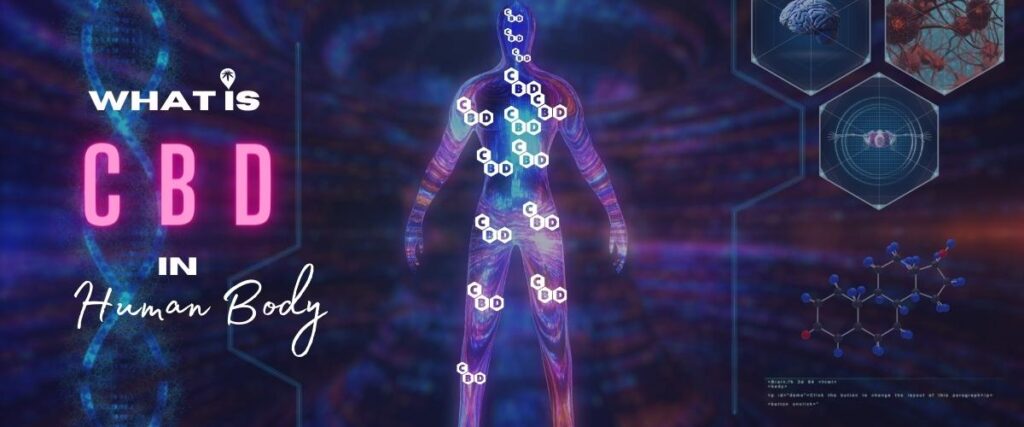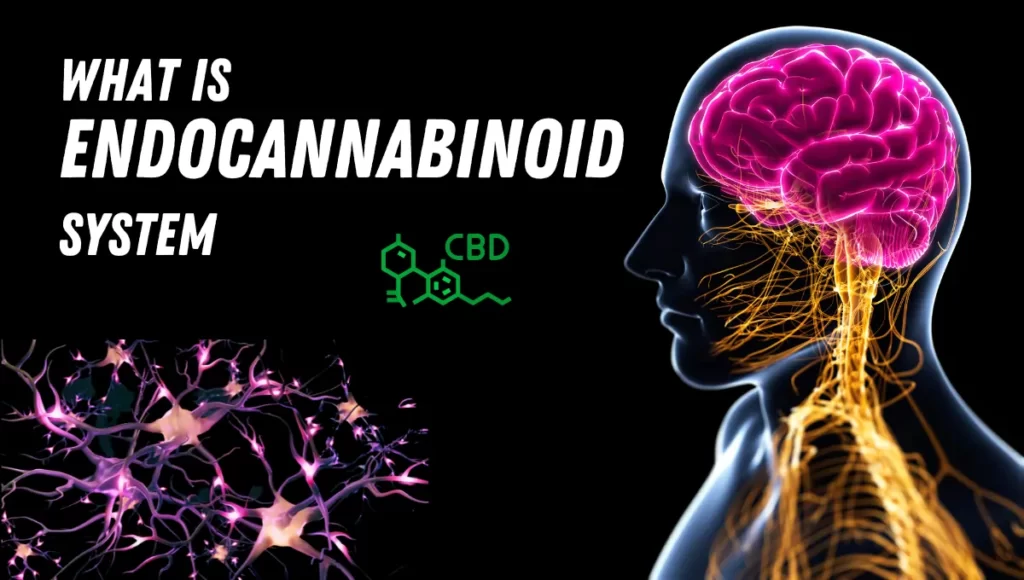CBD, or cannabidiol, is a chemical compound found in the Cannabis plant. It is one of the many cannabinoids present in the plant, which are chemical compounds that interact with the body’s endocannabinoid system (ECS). The ECS is a network of receptors and neurotransmitters that regulate a variety of physiological and cognitive processes, including pain, inflammation, mood, and appetite. Therefore CBD in the human body has an important role.
CBD is non-psychoactive, meaning it does not produce the “high” typically associated with the use of marijuana. This is because CBD does not contain significant amounts of tetrahydrocannabinol (THC), the psychoactive cannabinoid found in marijuana. As a result, CBD has gained popularity as a natural alternative to traditional medications for a variety of health conditions.
Human Body & Cannabinoids CBD
The History of CBD
The use of cannabis and its derivatives for medicinal purposes dates back thousands of years. In ancient civilizations, cannabis was used to treat a variety of ailments, including pain, inflammation, and anxiety. However, the use of cannabis as a medicinal plant declined with the rise of modern medicine and the criminalization of marijuana in many countries.
It wasn’t until the discovery of the ECS in the 1990s that the potential therapeutic benefits of CBD began to be fully understood. The ECS was found to play a critical role in the regulation of various physiological and cognitive processes, and researchers began to explore the potential of CBD and other cannabinoids as therapeutic agents.
In recent years, the use of CBD has gained widespread popularity, and it is now available in a variety of forms, including oil, capsules, tinctures, creams, and vaporizers. While more research is needed to fully understand the potential benefits and risks of CBD, it is increasingly being used as a natural alternative to traditional medications for a range of health conditions.
How CBD Works in the Body
The ECS is a complex system that plays a critical role in maintaining homeostasis in the body. It is made up of cannabinoid receptors (CB1 and CB2), endocannabinoids (molecules produced by the body), and enzymes that regulate the synthesis and degradation of endocannabinoids.
When CBD is consumed, it interacts with the ECS by binding to cannabinoid receptors, specifically the CB1 and CB2 receptors. These receptors are found throughout the body, including in the brain, immune system, and organs.
The interaction between CBD and the ECS can have a variety of effects on the body. For example, CBD may help to reduce inflammation, relieve pain, and reduce anxiety and stress. It may also have anti-seizure properties and be effective in reducing the severity and frequency of seizures in people with epilepsy.
In addition to its interaction with the ECS, CBD has been found to have a number of other potential health benefits. For example, it may help to reduce nausea and vomiting, improve sleep, and improve cardiovascular health. However, more research is needed to fully understand the potential benefits and risks of CBD.
The Safety of CBD
CBD is generally considered safe to use, with few side effects. Some people may experience dry mouth, lightheadedness, or drowsiness when taking CBD, but these effects are usually mild and do not last long. It is important to note that CBD can interact with certain medications, so it is always important to talk to a healthcare provider before starting to use CBD or any other supplement.
In addition, the purity and quality of CBD products can vary widely, so it is important to purchase from a reputable source like CBD Pakistan. Some CBD products may contain contaminants or be mislabeled, so it is important to do your research before choosing one.
How CBD is Used
CBD can be consumed in a variety of ways, including orally (as a capsule, oil, or tincture), topically (as a cream or lotion), or inhaled (as a vapor). The specific method of consumption will depend on the desired effects and the individual’s preferences.
When consumed orally, CBD is absorbed into the bloodstream through the digestive system. This method of consumption may take longer to take effect, but the effects may last longer. CBD oil, capsules, and tinctures are popular oral forms of CBD.
Topical CBD products are applied directly to the skin and are absorbed through the skin’s surface. This method of consumption may be effective for targeting specific areas of the body and is often used to treat conditions such as pain and inflammation. Creams, lotions, and salves are popular topical forms of CBD.
Inhaled CBD products, such as vaporizers, are absorbed through the respiratory system and take effect quickly. This method of consumption may not be as long-lasting as other methods, but it is often preferred for its rapid onset of effects.
Conclusion
CBD is a chemical compound found in the Cannabis plant that interacts with the body’s endocannabinoid system. CBD in the human body has a variety of effects, including reducing inflammation, relieving pain, and reducing anxiety and stress. While generally considered safe, it is important to talk to a healthcare provider before starting to use CBD or any other supplement. CBD is available in a variety of forms, including oil, capsules, tinctures, creams, and vaporizers, and can be consumed orally, topically, or inhaled. The legal status of CBD varies by country and jurisdiction, and it is important to stay up-to-date on the laws in your area.



